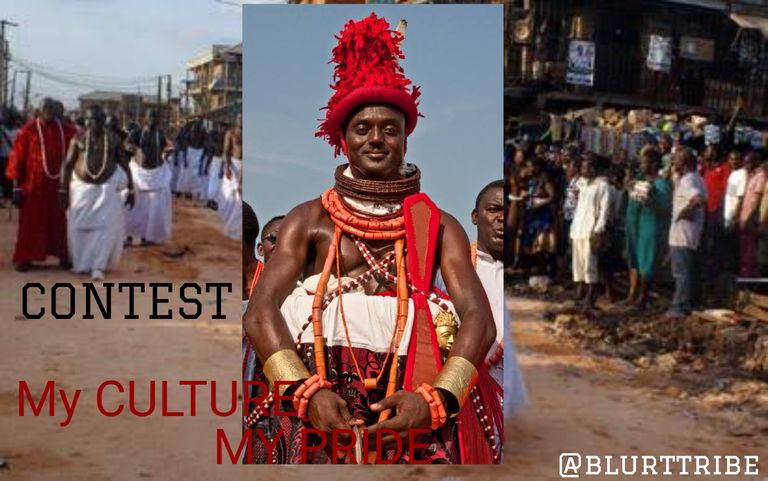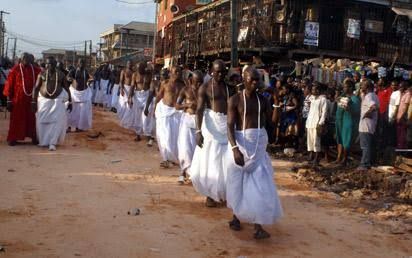Thanks @blurttribe for this contest and we will be expecting many more contest in future.
Everyone every have one particular culture or the other. This way of life being practiced by a certain group of people or community can be described as the culture of such people. Some of these culture have survived through the centuries as they are still being practised today.
My name is Samson Nosakhare Erhunmwunse from Benin in Edo state, the southern region of Nigeria. Edo is referred as 'The Heartbeat of the nation'.
Here in Benin, we are usually called the Binis and very keen with tradition. These traditions have been practised for more than 10 decades.
Though the Binis have cultures similar to that of other part of Nigeria, they don't take it likely when there beliefs and way of life is not adhered to. These cultures can either be in marriage, burial rites and many more.
Some tribe that can be found in the Edo kingdom are Esan, Isoko and Urhobo respectively.
My dad died a month ago and is being laid to rest, well I didn't grow up in Benin though but for the fact that I am the first son, there are family rites I must do for the burial to take place. Some of those rites are performed before the burial while others after the burial. In the Bini custom burial takes either 7 or 14 days, 7 days for ordinary people and the later for important chiefs, kings and the oba's. Even though alot has changed over the years but most Binis still do practise this culture.
Every day of this 7 days, several operations are carried out for the proper and successful burial.
- The first day usually referred to IWA ORHIMWIN is usually the day for the embalment of the corpse, followed by lying on state.
- It is followed by burial songs all the night, if the deceased have inlaws and children, they are called to prepare goats and foods for all those that would participate on the burial ceremony. When the deceased has no inlaws, the first son will be in charge of this.
- The eldest son is asked to slaughter a goat to appease the elders of the land, this is usually referred to as IZAKHUE. By doing this the spirit of the family is said to be appeased and the food is then consumed by the elders.
- The fourth day is usually for preparation and rest after a tedious two days events.
On the fifth day called ISOTON , the children of the deceased usually beginning from the eldest son is paraded round the town, all the male children must partake in this exercise. This is followed by a wake keeping where all well wishers, attendees and others present will be entertained.
- The event is brought to a climax on the seventh day where a wooden construction is made and covered with white clothes, after awhile this construction is collapse and woods are discarded and a goat is offered. This is usually referred to as ISUERHAN FUA.
It is also worthy to note that only those who are younger than the deceased are allowed to eat anything that pertains to this burial ceremony, the can attend no doubt but they must not eat or else the will die. The Edo people have very wonderful customs and traditions, sometimes they are scary but this is what makes them unique, this is also the Pride of the Edo people.
Finally, the Benin are very homely and accommodating people, it is a home of traditions and tourists, everyone is welcome.
Thank you for reading through.


Wow!..I really learnt something from your tradition
Thanks @blurttribe. Good to know you learnt something.
Thank you for participating 👍
:::Discord :::Whatsapp:::Telegram :::